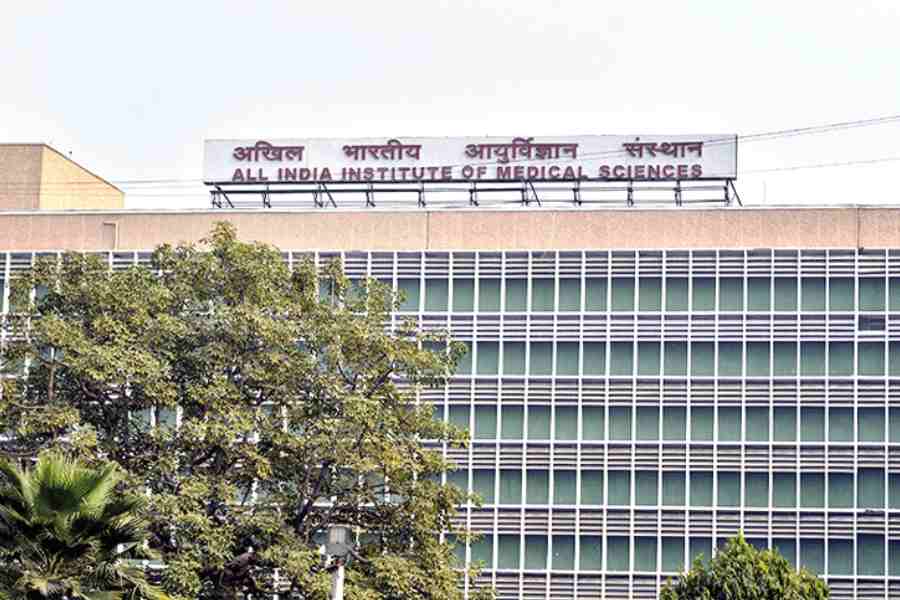A balance must be struck between making hospitals secure and at the same time accessible for patients to freely consult doctors, AIIMS-Delhi Director Dr M Srinivas said amid demands by medics across India for a safe work environment following the R G Kar rape-murder incident.
In an exclusive interview with PTI editors, Dr Srinivas said not much heed has been paid to the safety and comfort of medical professionals and the focus has been on patient care and "being emotionally attached to them".
The rape and murder of a trainee woman doctor at the West Bengal government-run R G Kar Medical College and Hospital in Kolkata has sparked an intense debate over frailties in hospital infrastructure as well as the working conditions and safety of medical professionals.
Dr Srinivas, who is a member of the National Task Force tasked with formulating a protocol for ensuring the safety of doctors and other healthcare professionals in the aftermath of the Kolkata incident, said the demands by resident doctors have opened everyone's eyes.
"If you look at institutes of national importance such as AIIMS and PGI Chandigarh, they are still better off regarding infrastructure in terms of duty rooms, basic amenities, hostels and defined working hours," he said.
However, the ecosystem has to be upgraded to make doctors and other healthcare workers comfortable, he stressed.
"What has happened over a period of time is that most of the medical establishments have expanded on the hospital side but not on the hostel side. So, there has been a mismatch in some institutions in the last five to 10 years. This needs to be taken care of," the AIIMS-Delhi director said.
Underlining that the holistic expansion of medical institutions was overlooked, Dr Srinivas said, "We were emotionally attached to patient care and services (till now)." Over the issue of doctors having long duty hours that stretch up to 24 hours and at times even 36 hours, he said the National Medical Commission (NMC) has come out with guidelines on doctors' working hours.
Several institutions, including AIIMS-Delhi, have almost implemented it and are on the same page with what NMC has recommended, he said.
"In parts of the world, there are regulations under which medics are not supposed to work beyond a certain number of hours in a stretch or in a week. Well definitely, if you ask me, there should be a restricted number of working hours whether it is in a stretch or per week and post-duty offs. We are conscious about it," Dr Srinivas said.
"As far as the quality (of medical services) is concerned, if the number of working hours are extended beyond a limit, definitely it will have some impact on the quality outcomes also," he said.
He admitted that much needs to be done regarding the welfare measures and for making healthcare professionals comfortable at the workplace -- in terms of round-the-clock accessibility to food, duty rooms, intra-institutional campus navigation when adequate lighting is not there and security.
There is a need to have a multi-pronged approach to ensure optimal utilisation of resources, Dr Srinivas emphasised.
"An ecosystem has to be developed so that they are comfortable. That's what we have not given much importance to. I think we were engrossed in patient care services and never looked into the requirements of doctors, nurses and hospital staff and that is something we need to focus on," the AIIMS-Delhi director said.
It may be a little difficult for bigger hospitals, he said but stressed that at AIIMS or bigger institutions, most of the systems concerning welfare and safety measures are in place.
"We need to have a fine balance... whether you want to make it like an airport or fortress or you want the patient to come to you and speak to you freely without much hindrance," Dr Srinivas said.
Referring to the recent protests and strike by the resident doctors, he said their demands were "all genuine".
"Somebody wants a duty room, a safe workplace area, restricted working hours, post-duty off, mess facility and ensuring that patients' attendants should pounce on them (on the doctors) at the casualty and emergency areas.
"When doctors are on night duty or extended duty... attendants should not come and thrash them. But what ecosystem we create depends on each hospital," Dr Srinivas said.
When things go wrong, a patient's condition deteriorates or dies, suddenly not only just that patient's attendant but also those of others attack doctors.
"That's an area where we need to keep some sort of buffer. (We need) somebody at that level -- a senior person or medico-social worker -- who will speak to the attendants and calm them down," Dr Srinivas said.
"Doctors are not God. There will be complications, there will be deaths but there should not be negligence. When problems occur, a patient and his or her attendant also have to understand what is the normal course of that particular disease and prognosis," the AIIMS-Delhi director said.
Except for the headline, this story has not been edited by The Telegraph Online staff and has been published from a syndicated feed.










